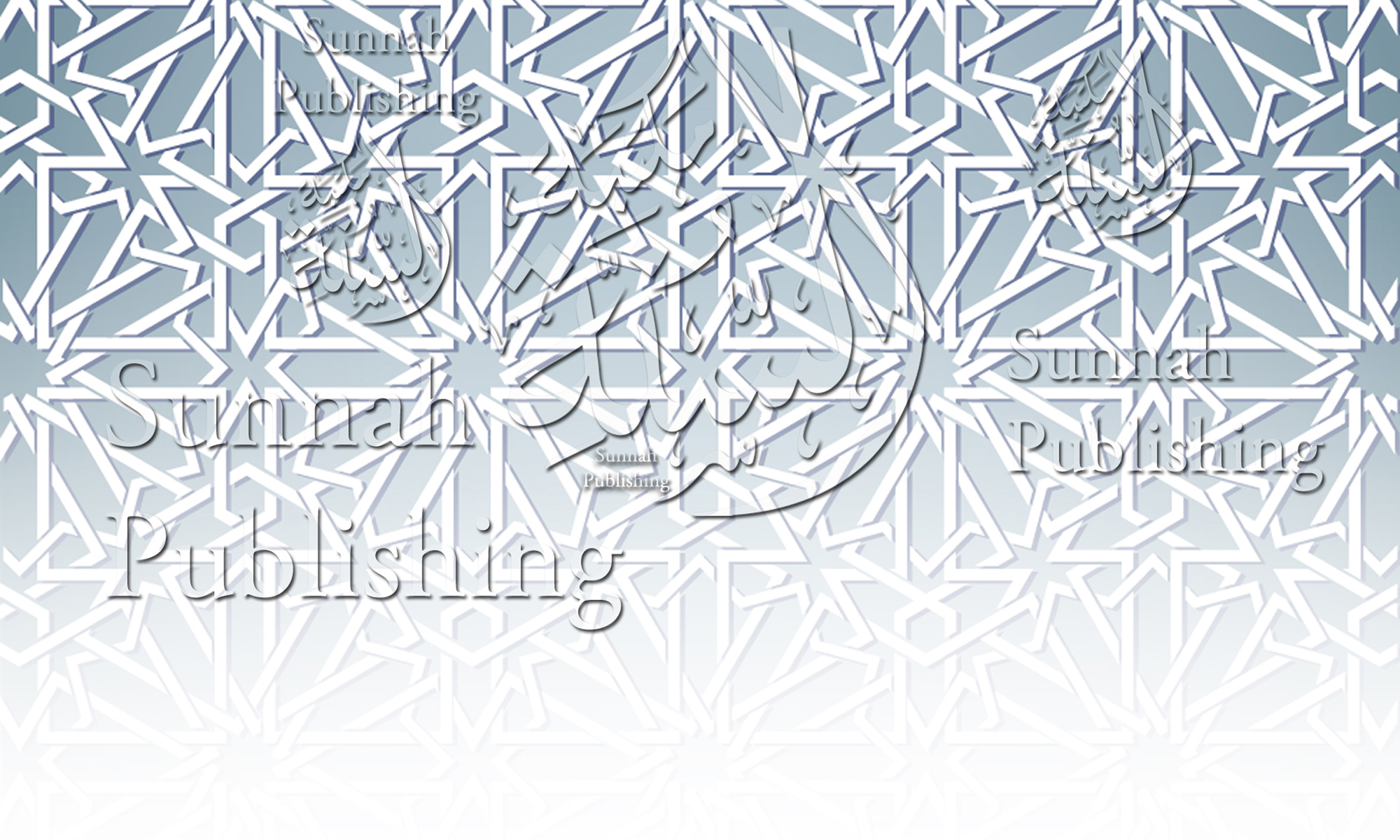[fap_track id=”3290″ layout=”list” enqueue=”no” button_enqueue=”no”]
[Q]: The ninth question is: why have you chosen al-Jarh wat-Ta’deel as a path, even though it is counted as a cause for division within the Ummah and it is considered a path to hatred for those who travel upon this mode of conduct in the view of many of the callers (du’aat) and reformers?
[A]: If we were to abandon al-Jarh wat-Ta’deel, then the statement of the Imaam, the exemplar, Shaykh Ibn Baaz (d.1420H) and the statement of ’Alee at-Tantaawee [1] would become the same, but they are not the same. So we are in need of clarifying the condition of Hasan at-Turaabee [2] and Yoosuf al-Qardaawee [3] and ’Abdul-Majeed az-Zindaanee. Likewise, it is inevitable to clarify the condition of the heads of the Ikhwaanul-Muslimeen be clarified and the government scholars as well. It is inevitable that their condition be clarified, those who argue for the governments with falsehood, whilst the Lord of Might says in His Noble Book,
“And do not argue on behalf of those who deceive themselves. Indeed, Allaah does not like anyone who is a betrayer of trust and indulges in crime.” [Sooratun-Nisaa‘ 4:107]
So the Messenger (sallallaahu ’alayhi wa sallam) said, “”Indeed, I fear for my Ummah imaams who will mislead.” [4] Who was its narrator? And who related it, O Zakariyyaa? Do you have it? Speak, who related it? Aboo Daawood, correct. Yes, its narrator was Thawbaan and Aboo Daawood related it.
So the Messenger of Allaah (sallallaahu ’alayhi wa sallam) said that. And the Lord of Might says in His Noble Book,
“O you who believe! Indeed, there are many of the rabbis and the monks who devour the wealth of mankind in falsehood and hinder them from the Path of Allaah.” [Sooratut-Tawbah 9:43]
And the Messenger (sallallaahu ’alayhi wa sallam) said, “What an evil brother to his family,” [5] and he said, as occurs in al-Bukhaaree, “I do not think that so and so and so and so know anything from our Religion.” [6] And he said whilst prohibiting Mu’aadh, “Are you a fattaan (one who stirs up trials and tribulations), O Mu’aadh?” [7] And he said, to Abee Dharr, “Indeed, you are a man who has jaahiliyyah (pre-Islaamic times of ignorance) in him.” [8] And he said to his wives, “You are surely like the female companions of Yoosuf.” [9]
Indeed, I praise Allaah for we have mentioned a beneficial passage in al-Makhraj minal-Fitnah and also in al-Jaami’us-Saheeh mimmaa laysa fis-Saheehayn. And this was done with evidences for whosoever will rely upon them.
Indeed, I praise Allaah that al-Jarh wat-Ta’deel has pulverized (tahana) ’Abdur-Raheem at-Tahhaan. [10] It has pulverized him, O brothers. And it has severed (qarrada) the tongue of Yoosuf al-Qardaawee.
How many times have they informed us that an Egyptian individual delivers an admonition in which many government employees are present. And after this, that individual explains,
“By al-’Asr (the time). Indeed, mankind is in a state of loss.” [Sooratul-’Asr 103:1-2]
So he says, ‘The minister of the interior is in a state of loss, except if he is from the Believers.’ And after that he says, ‘Before I had even realized it, the ministers and the employees would each hid behind the other so that none of them would be seen saying that he is in a state of loss, except if he is a Believer.’
And I praise Allaah that the hearts of the innovators tremble due to a cassette tape, which perhaps has reached them in Britain, or America or in other places. And Allaah is the One from whom aid is sought. Yes.
[Q]: And what about the one who says that it (i.e. al-Jarh wat-Ta’deel) ended with the time of narration?
[A]: The ones who say that it ended, my brothers, they know that they are majrooh (disparaged, criticized). Due to this, they do not want anyone to speak about al-Jarh wat-Ta’deel. I met with some of them at the office of at-Tawjeeh wal-Irshaad after the release of al-Makhraj minal-Fitnah and they said, “It is backbiting, al-Makhraj minal-Fitnah is backbiting. It is the madkhal (entrance) to fitnah (trial).” I spoke with them and they said to us, ‘We shall make peace, We shall make peace. Tell them to remain silent and we shall make peace with regards to whatever has agitated them.’ And then nothing happened. They said, ‘Yes, you have struck a blow against us and we shall make peace.’ If our strike was correct, then why did you say you would make peace? It was just that after we struck them a blow, we left it for a few days to let things cool down, then we came to them with another blow. And was it not correct? The war is deception.
So they are fearful of al-Jarh wat-Ta’deel, because they know that they are majrooh (disparaged, criticized). And they are likewise fearful of writings against them. An elder from amongst the elders of the tribes, one of those who used to have sympathy for the Ikhwaanul-Muslimeen, said to me, ‘Why have you aggravated them, O Abaa ’Abdur-Rahmaan?’ I said, “Let us make peace and whatever has passed is in the past.” He said, ‘No problem, we shall make peace and whatever has passed is in the past and do not write against them.’ He said, ‘We permit you to speak against them. There is no problem in speaking on a cassette tape. However, this writing agitates them.’ So when I saw that they were agitated, I resolved to collect the cassette tapes into books and publish them. And Allaah is One from whom aid is sought.
Endnotes:
[1]: This is the individual whom Imaam Muhammad Naasirud-Deen al-Albaanee (d.1420H) referred to as an “enemy of the Da’watus-Salafiyyah.” Shaykh Muqbil said, “The one who abstains from al-Jarh wat-Ta’deel has abstained from the Sunnah. So if there was no Jarh wat-Ta’deel, then the speech of the noble Scholar who calls to Allaah would be the same as the speech of ’Alee at-Tantaawee, and the same as the speech of Muhammad as-Sawwaaf, and the same as the speech of Muhammad al-Ghazaalee, or the same as Hasan at-Turaabee, or the same as ash-Sha’raawee, or the same as the speech of the Shee’ah and the Raafidah, or the same as the speech of the Soofee: Hasan as-Saqqaaf.
No one abstains from this knowledge, except for a man who is ignorant, or a man who holds rancour in his heart, or a man who knows that he is majrooh (disparaged, criticized), so he diverts others from al-Jarh wat-Ta’deel, because he knows that he is majrooh.” Refer to Fadaa‘ih wan-Nasaa‘ih (p. 115) of Muqbil Ibn Haadee.
[2]: Shaykh Muqbil said about his books that they are, “books of deviation and misguidance.” Refer to Qam’ul-Mu’aanid (p. 504) of Muqbil Ibn Haadee.
[3]: Shaykh Muqbil – rahimahullaah – said about his famous book, al-Halaal wal-Haraam, “As for this one, then it is a disfigured book. And it is a small book! This demonstrates the scope of your knowledge. If an individual were to write about the halaal and the haraam, then it would surely reach volumes. Indeed, Shaykh al-Fawzaan has refuted it in a book that he called: Naqdul-Halaal wal-Haraam.” Refer to al-Majroohoon ’indal-Imaamil-Waadi’ee (p. 103) of ’Aadil as-Siyaaghee.
[4]: Saheeh: Related by Aboo Daawood (no. 4252), ad-Daarimee in his Sunan (no. 209) and Ahmad in al-Musnad (no. 21888). It was authenticated by al-Albaanee in Saheeh Sunan Abee Daawood (no. 3577).
[5]: Related by al-Bukhaaree (no. 5685), Muslim (no. 2591), Aboo Daawood (no. 4792), at-Tirmidhee (no. 1996) and Ahmad in al-Musnad (no. 23586).
[6]: Related by al-Bukhaaree (no. 5720).
[7]: Related by al-Bukhaaree (no. 673), Muslim (no. 465), Aboo Daawood (no. 790), an-Nisaa‘ee (no. 835) and Ahmad in al-Musnad (no. 13778).
[8]: Related by al-Bukhaaree (no. 30), Muslim (no. 1661), Aboo Daawood (no. 5157) and Ahmad in al-Musnad (no. 20291).
[9]: Related by al-Bukhaaree (no. 647), Muslim (no. 418), Maalik in al-Muwatta‘ (no. 414) and Ahmad in al-Musnad (no. 25348).
[10]: Shaykh Muqbil has stated about him, “You are nothing but an innovation and you come with innovation and you argue with misguidance. And if Allaah so wills, we shall come out with a book entitled, Iqaamatul-Burhaan ’alaa Dalaal ’Abdir-Raheem at-Tahhaan (Establishing Evidence for the Misguidance of ’Abdur-Raheem at-Tahhaan). So if only you would lower yourself and learn and study Saheehul-Bukhaaree and Muslim and Fathul-Majeed and other than those.” Refer to Fadaa‘ih wan-Nasaa‘ih (p. 249).
Translation by Maaz Qureshi

